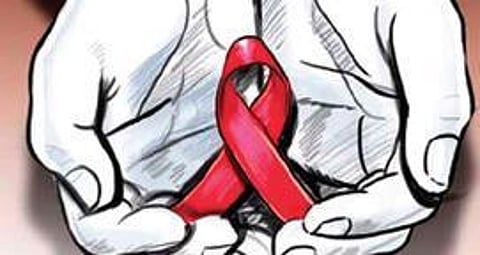

HYDERABAD: While the world rushes to vaccinate the population against SARS-CoV-2, it is time to raise awareness about another virus which still has no vaccine. December is AIDS awareness month, and a webinar was conducted to dispel the various misconceptions that are still prevalent around Human Immunodeficiency Virus (HIV) and Acquired Immunodeficiency Syndrome (AIDS).
Synchrony, in collaboration with Youngistaan Foundation, Mobbera Foundation and 1to1help.net, organised the webinar with the aim of educating the public about how the virus spreads and the prevention measures that need to be taken. Pratichi Hota, a counsellor from 1to1help.net, said: “The most common misconception that people have around the disease is that they think HIV and AIDS are the same.
But nothing could be further from the truth. If a person is infected with the Human Immunodeficiency Virus, it does not mean she has AIDS. If HIV is not treated, it can lead to AIDS. Today, there are medicines that can delay the onset of AIDS, and help the patient enjoy a high quality of life.” Explaining the other factors that can contribute to a healthy life, the counsellor said: “Since HIV attacks the immune system, it is necessary that the patient adopts certain lifestyle changes and diets which can help his body to fight the virus.
The virus makes a person more vulnerable to pneumonia, TB and certain fungal infections. Along with antiretroviral therapy (ART), the patient should follow a healthy diet, exercise regularly and get adequate sleep.” Stating that science has made great progress in managing the disease, the counsellor said: “Earlier, a patient had to take 32 pills a day. Now, the requirement is only 3-5 pills.” A few other misconceptions about the disease is that many still believe it affects only gay men, or only youngsters, or people from the lower-income group only. However, anyone can be infected by HIV. Unprotected sex and shared syringes are the primary modes through which HIV is transmitted.
That is why, persons who have been infected must avoid taking drugs in order to stop its spread. “Sharing food with an infected person, hugging, working or sharing a pool with her does not transmit HIV. An HIV positive mother can bring down the chances of transmission to her child to almost zero by taking treatment. However, it can get transmitted through breast milk,” said Pratichi. An HIV detection test costs `600 in Hyderabad. You can get the test done for free in government hospitals.
If you are fearing the stigma around the test and need monetary and emotional help, certain NGOs like The Humsafar Trust and Samarth can help you. Sandipan from Mobbera Foundation and Arun from Youngistaan Foundation said that their organisations can guide those who want to gettested.
Do you know?
HIV can spread through: Blood, semen, pre-seminal fluid, breast milk, rectal fluids, vaginal fluids
HIV cannot spread through: Saliva, sweat, tears, air, insect bites
— Kakoli Mukherjee kakoli_mukherjee @newindianexpress.com @KakoliMukherje2